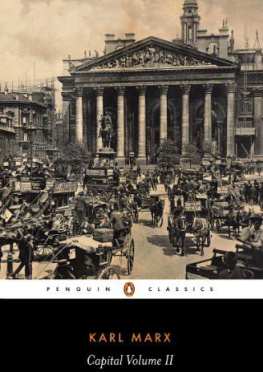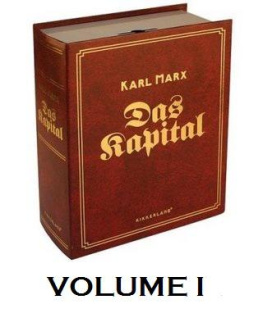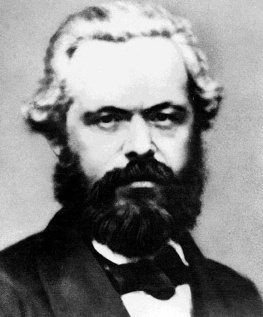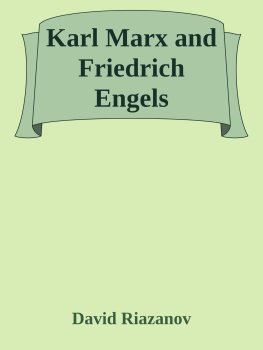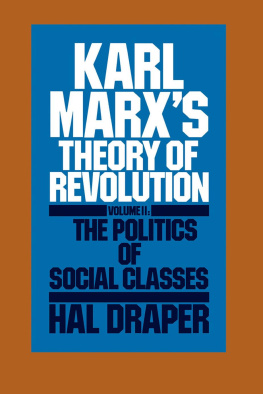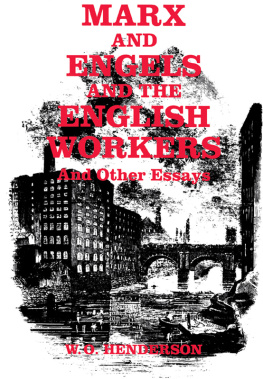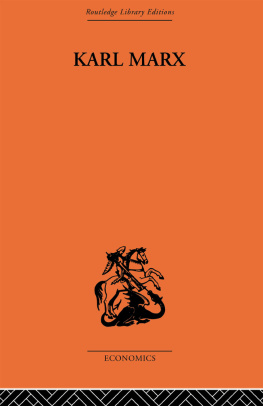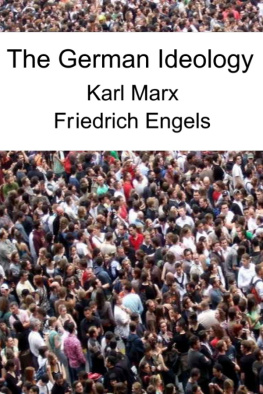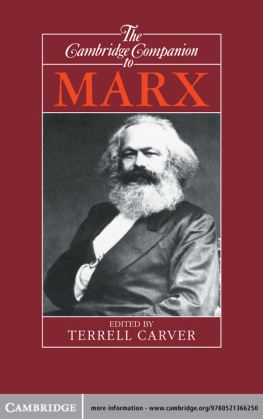Karl Marx - The Marx-Engels Reader
Here you can read online Karl Marx - The Marx-Engels Reader full text of the book (entire story) in english for free. Download pdf and epub, get meaning, cover and reviews about this ebook. year: 0, genre: Art. Description of the work, (preface) as well as reviews are available. Best literature library LitArk.com created for fans of good reading and offers a wide selection of genres:
Romance novel
Science fiction
Adventure
Detective
Science
History
Home and family
Prose
Art
Politics
Computer
Non-fiction
Religion
Business
Children
Humor
Choose a favorite category and find really read worthwhile books. Enjoy immersion in the world of imagination, feel the emotions of the characters or learn something new for yourself, make an fascinating discovery.
- Book:The Marx-Engels Reader
- Author:
- Genre:
- Year:0
- Rating:5 / 5
- Favourites:Add to favourites
- Your mark:
- 100
- 1
- 2
- 3
- 4
- 5
The Marx-Engels Reader: summary, description and annotation
We offer to read an annotation, description, summary or preface (depends on what the author of the book "The Marx-Engels Reader" wrote himself). If you haven't found the necessary information about the book — write in the comments, we will try to find it.
The Marx-Engels Reader — read online for free the complete book (whole text) full work
Below is the text of the book, divided by pages. System saving the place of the last page read, allows you to conveniently read the book "The Marx-Engels Reader" online for free, without having to search again every time where you left off. Put a bookmark, and you can go to the page where you finished reading at any time.
Font size:
Interval:
Bookmark:
The Marx-Engels Reader
Preface to the Second Edition
A knowledge of the writings of Marx and Engels is virtually indispensable to an educated person in our time, whatever his political position or social philosophy. For classical Marxism, as the thought of Marx and Engels may be called, has profoundly affected ideas about history, society, economics, ideology, culture, and politics; indeed, about the nature of social inquiry itself. No other intellectual influence has so powerfully shaped the mind of modern left-wing radicalism in most parts of the world. Through classical Marxism, moreover, the left is linked to a greater intellectual tradition extending into the eighteenth-century French Enlightenment, German post-Kantian philosophy, English political economy, and early-nineteenth-century European socialism. Not to be well grounded in the writings of Marx and Engels is to be insufficiently attuned to modern thought, and self-excluded to a degree from the continuing debate by which most contemporary societies live insofar as their members are free and able to discuss the vital issues.
This book offers the original writings needed to acquire a thorough grounding in Marxist thought, together with introductory notes to each selection, a chronology of the careers of the two men, and a concluding bibliographic guide to some of the literature about them and their thought. I have aimed to place between the covers of one volume all or nearly all of what could be considered the essential Marx and Engels. Since their published writings and correspondence fill more than forty volumes, such an undertaking involves difficult problems of selection. In resolving them I have followed certain established traditions in the anthologizing of Marx and Engels, but also have sought to break fresh ground. The main innovations are the inclusion of the principal early writings of Marx and substantial portions of Capital and the Grundrisse .
The inclusion of the early Marx is a response to the revolution that has taken place in Marxology in our time owing to the publication in the 1930s of some previously unknown writings of Marxs formative period. I shall say more about these writings and their significance in the Introduction. The outcome of the new Marx scholarship, as I shall argue, is a deeper and clearer understanding both of Marxisms origins in post-Kantian German philosophy and of its fundamental meaning. The new scholarship has also made plain the basic underlying continuity that exists between the early and later Marx. For these reasons, among others, the most important of the early writings deserve to be represented in any collection of the essential Marx and Engels, and have been included here.
Marx without Capital is Kant without The Critique of Pure Reason or Darwin without The Origin of Species . Even though he completed only the first volume of it, leaving the second and third volumes in unfinished form to be edited and published by Engels after he died, Capital was Marxs great work. When he completed and published Volume One in 1867, he described it in a letter to a friend as the book to which I have sacrificed my health, my happiness and my family. When read closely and in the context of the remainder of his writings, Capital turns out to be not simply Marxs major treatise on political economy, but his principal work on man, society, and governmentindeed, the fullest expression of his entire world-view. Clearly, there can be no essential Marx and Engels with Capital missing, yet the book is forbidding on account of its great sizeabout eight hundred pagesand its complexity. Feeling that token solutions of this problem through the inclusion mainly of Marxs prefaces to Capital are unsatisfactory, I have tried to resolve it by putting together sufficiently extensive extracts to convey the books basic argument, the parts of greatest general interest.
The hospitable reception of this volume since its appearance five years ago has encouraged me to prepare a revised and enlarged edition to meet more fully the needs of teacher and student in the various disciplines for which Marxist thought is important.
No changes have been made in those respects in which the book seems to have proved sound: the five-part plan of organization; the idea of combining the thematic with the chronological in arranging the material; the integration of the early philosophical Marx with the later writings of both Marx and Engels; the inclusion of Capital ; and the premise that Engels, in some measure, is quite indispensablethat a general anthology of classical Marxism cannot properly meet the needs of student and teacher unless it is a Marx-Engels reader. On the other hand, the material added in the new edition is mostlybut not exclusivelyby Marx. The Marx portion of the reader, already predominant in the first edition, has been substantially increased in this one.
Additions are of two kinds: the inclusion of works, or material from works, not represented in the first edition; and the addition of more material to works that were included in less than the desirable measure. A small number of excisions, in no case involving a work as a whole, have been made in order to help accommodate voluminous additions without unduly increasing the books bulk and cost.
Of the two parts that have been most heavily enlarged, one is Part I (The Early Marx), where I have added selections from Marxs commentary of 1843 on Hegels Philosophy of Right (Marxs most extended work of strictly political analysis); the important section of the Economic and Philosophical Manuscripts of 1844 on The Meaning of Human Requirements; selections from the student Marxs letter to his father in 1837, from Marxs doctoral dissertation, from the article Critical Marginal Notes, and from Marxs early exposition of historical materialism in his 1846 letter to Annenkov.
The other part enlarged in greatest measure is Part II (The Critique of Capitalism), featuring Marxs economic writings. The chief innovation is the inclusion of extensive extracts from the Grundrisse , including the whole of its introductory part. Additions have been made to Volume One of Capital : the section on the Industrial Reserve Army and the chapters on The Buying and Selling of Labour-Power and Modern Industry and Agriculture. The famous unfinished concluding chapter on Classes has been added to the short selection from Volume Three of Capital , and Marxs discussion of economic crises in his still little-known Theories of Surplus Value has been added for those with a specialized interest in Marxian economics. Other, brief additions to Part II are the concluding section of The Poverty of Philosophy , presenting Marxs 1847 preview of the violent revolutionary breakdown of capitalist society, and Marxs 1852 statement to Wedemeyer on what he considered his main innovation in the theory of history. Wage Labour and Capital has been preserved, although it is now given in somewhat condensed form. Engels revealing discussion in Anti-Dhring on The Division of Labour in Production, with added material, has been moved to Part V (The Later Engels).
Part III (Revolutionary Program and Strategy) has been enlarged by three short selections: Marxs speech of 1872 in Amsterdam allowing for the possibility of a peaceful road to socialism in certain countries; his discussion in a letter to Bolte in 1871 of the way in which economic issues should figure in revolutionary working-class politics; and his rebuttal of Bakunins criticisms of Marxism (this occurs in Marxs conspectus, written in 187475, of Bakunins work Statehood and Anarchy ).
A classical historical pamphlet now included in Part IV (Society and Politics in the Nineteenth Century), Marxs The Class Struggles in France 18481850 , is represented in extracts containing its passages of general bearing and interest. The key sections of The Eighteenth Brumaire of Louis Bonaparte and The Civil War in France are retained although some mainly narrative parts have been deleted. A short new section entitled Europocentric World Revolution presents thoughts of Marx and Engels on the problematic relation of the predicted European socialist revolution to future developments in the non-European parts of the world. Lastly, a key passage from Marxs letter of 1881 to Vera Zasulich has been added to the selection On Social Relations in Russia.
Next pageFont size:
Interval:
Bookmark:
Similar books «The Marx-Engels Reader»
Look at similar books to The Marx-Engels Reader. We have selected literature similar in name and meaning in the hope of providing readers with more options to find new, interesting, not yet read works.
Discussion, reviews of the book The Marx-Engels Reader and just readers' own opinions. Leave your comments, write what you think about the work, its meaning or the main characters. Specify what exactly you liked and what you didn't like, and why you think so.


